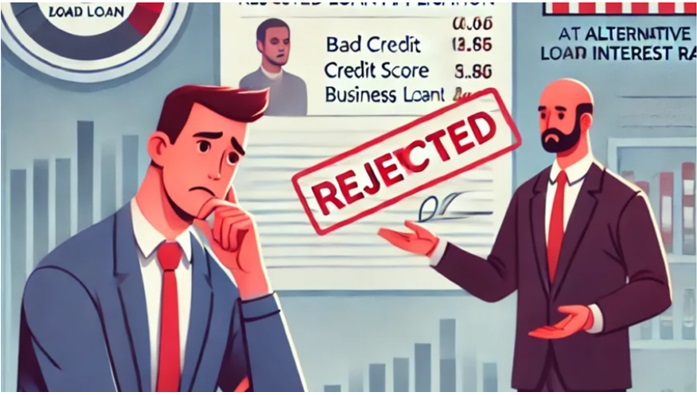Bad credit can make securing a car loan more challenging, but it does not make it impossible. There are lenders and dealerships that specialize in working with people who have low or no credit, offering options tailored to their financial situation. Many borrowers with bad credit can still get approved for car loans, often with manageable terms and competitive rates.
Understanding the different types of bad credit car loans and how to navigate the application process is crucial for finding the right financing. Some lenders focus specifically on helping those with poor credit, providing quick approvals and flexible payment plans. This makes it possible for individuals to buy a safe, reliable vehicle despite credit setbacks.
Knowing where to look and what to expect can save both time and money when shopping for a car loan with bad credit. With the right approach, many can improve their chances of approval and secure financing that fits their budget without excessive stress.
Understanding Bad Credit Car Loans
Bad credit car loans enable people with low credit scores to finance a vehicle purchase. Approval depends on factors beyond credit scores, including income and employment. Borrowers face different requirements and loan terms compared to those with good credit.
What Are Bad Credit Car Loans?
Bad credit car loans are auto loans designed for people with damaged or limited credit history. These loans help borrowers buy vehicles when traditional financing options are unavailable. Lenders typically charge higher interest rates due to increased risk.
Such loans often come with stricter terms, including larger down payments and shorter repayment periods. Some lenders may require a co-signer or proof of steady income. Despite challenges, these loans can provide access to reliable transportation for those rebuilding credit.
How Credit Scores Affect Car Loan Approval
Credit scores significantly influence loan approval chances and interest rates. Scores below 600 generally fall into “bad credit” territory, causing lenders to view applicants as high-risk.
Low scores usually lead to higher interest rates, increasing the overall loan cost. Some lenders accept scores as low as 470 but expect higher rates or more conditions like co-signers. Income verification and existing debts also impact lender decisions.
Borrowers with poor credit should shop around and compare offers to avoid unfavorable loans. Improving a credit score before applying can yield better financing options.
Typical Requirements for Poor Credit Auto Financing
Lenders reviewing bad credit car loan applications focus on these key factors:
- Proof of steady income: To ensure loan repayment ability.
- Down payment: Often 10-20% of the vehicle price, reducing lender risk.
- Co-signer: Optional but can improve approval chances and rates.
- Vehicle age and condition: Some lenders limit loans to newer or certified vehicles.
Applicants must provide documentation like pay stubs, proof of residence, and possibly bank statements. Meeting these requirements does not guarantee approval but improves prospects when combined with thorough research and realistic budgeting.
Applying for a Car Loan with Bad Credit
Securing a car loan with bad credit requires careful preparation, selecting lenders who understand credit challenges, and taking steps to improve approval odds. Attention to details like income proof, lender types, and financial habits makes a notable difference in the loan process.
Steps to Prepare Before Applying
Before applying, individuals should gather proof of a stable income, such as pay stubs or tax returns. This shows lenders the ability to repay the loan.
Reviewing the credit report for errors is essential. Correcting inaccuracies can improve the credit score and loan eligibility.
Saving for a down payment helps lower the loan amount and demonstrates financial commitment. A larger down payment enhances the chances of approval and can reduce interest rates.
Finally, calculating the debt-to-income ratio gives a clear picture of financial health. Lenders use this to assess if the borrower can handle additional debt without strain.
Choosing the Right Lender
Choosing lenders who specialize in bad credit car loans increases approval chances. These include private lenders, specialized dealerships, and subprime lenders familiar with riskier profiles.
It is important to compare loan offers on interest rates, repayment terms, and fees. Interest rates for bad credit loans in Canada often range from 7% to 20%, with higher rates reflecting increased risk.
Online pre-approval services allow borrowers to explore options without impacting credit scores. This helps identify lenders willing to work with poor credit.
Working with local lenders or those who understand regional financial conditions can also be advantageous.
Improving Your Chances of Approval
Improvement begins with reducing outstanding debts to lower the debt-to-income ratio. Paying down credit cards or other loans signals responsibility.
Maintaining consistent income over several months reassures lenders. Job stability is a factor lenders consider heavily.
Building a co-signer relationship with someone who has good credit can significantly raise approval chances.
Finally, choosing a reliable vehicle within the borrower’s budget demonstrates realistic planning and reduces lender risk.




